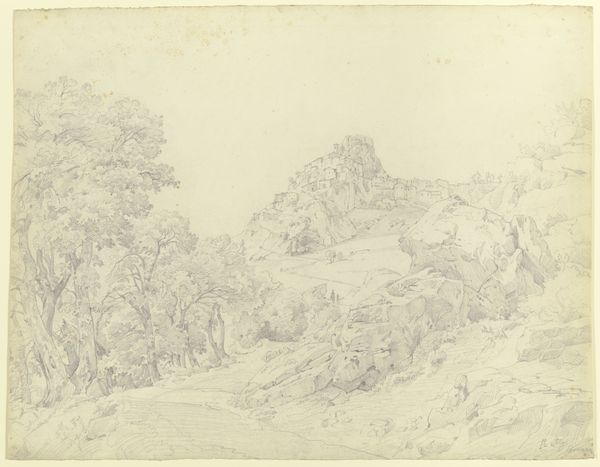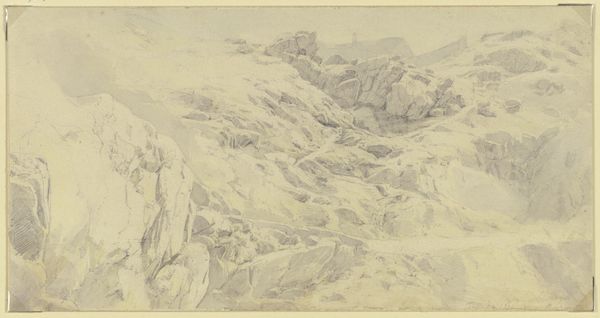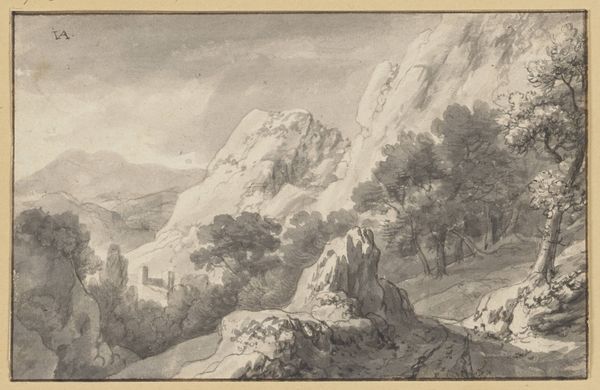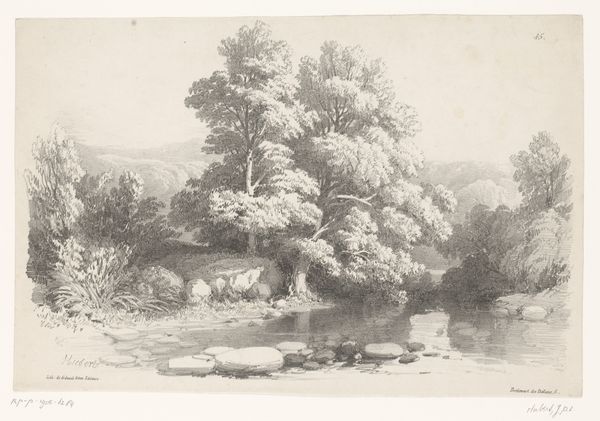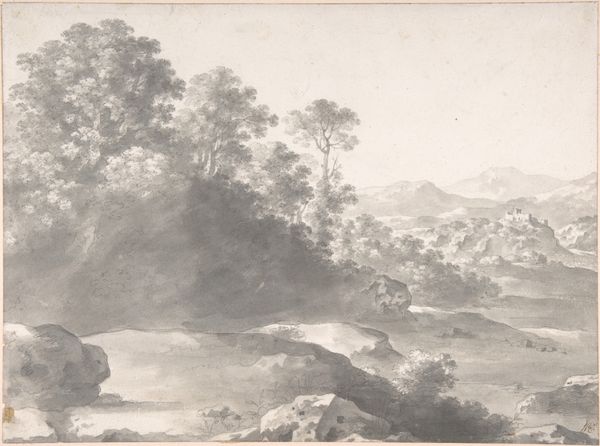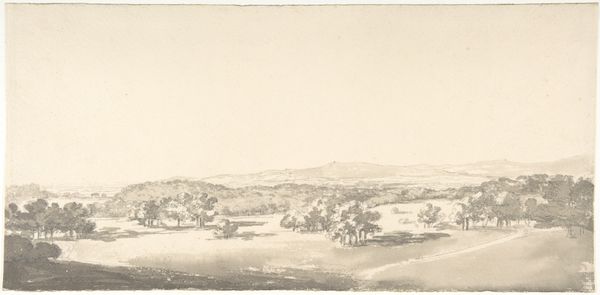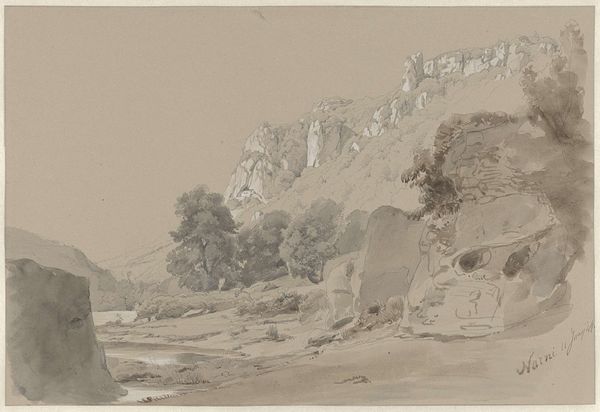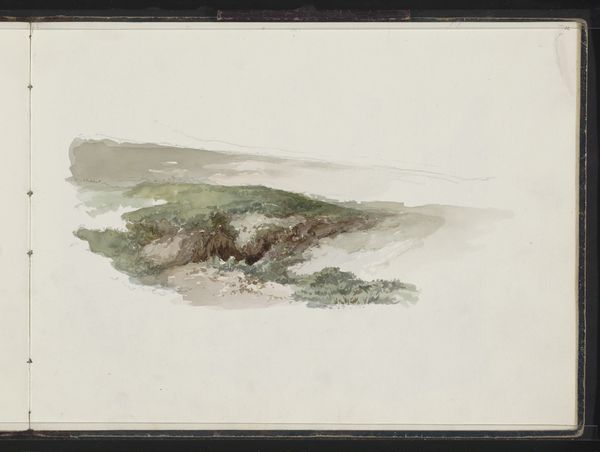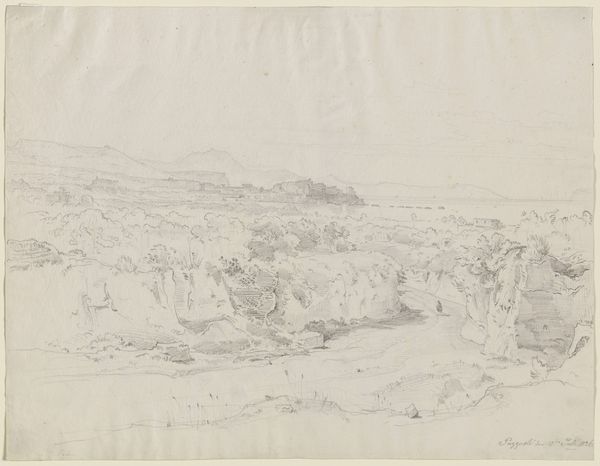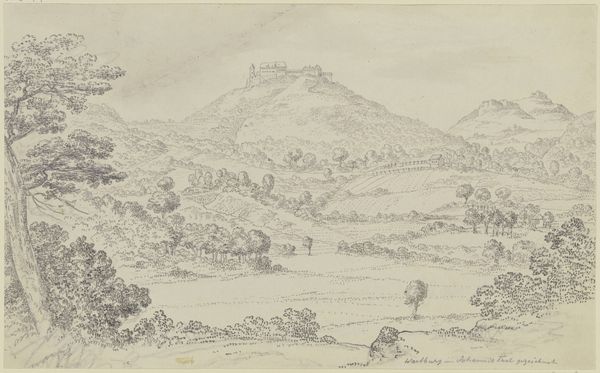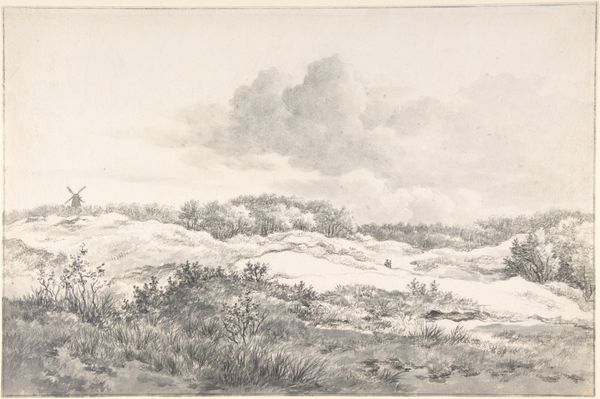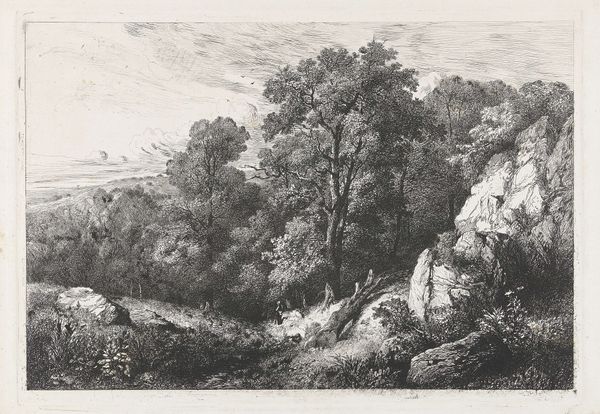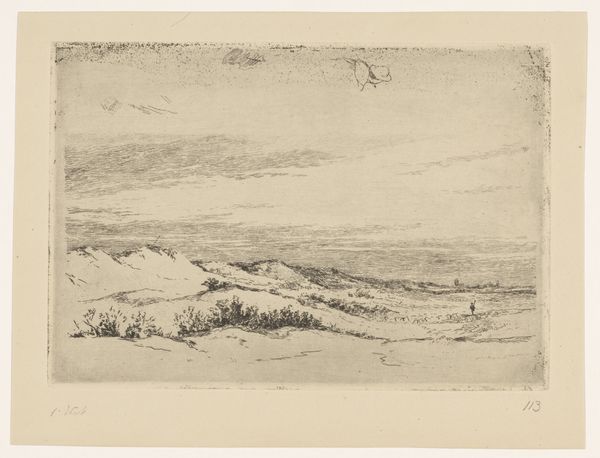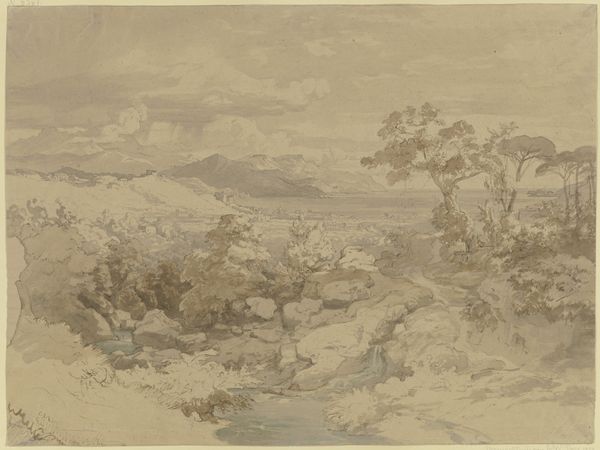
drawing, ink
#
drawing
#
16_19th-century
#
landscape
#
ink
#
romanticism
Copyright: Public Domain
Ernst Fries created this landscape of Tuscany in the early 19th century with pencil and wash. Fries, a German artist, died young, at only 32, but he left behind a body of work that reflects the Romantic era's fascination with nature and the sublime. During this period, the concept of landscape art was deeply intertwined with notions of national identity and cultural pride. Artists often depicted idealized versions of their homeland. Fries extends this sentiment to his travels. Though German, he spent time in Italy, and this is his rendering of the Italian countryside. Consider how Fries portrays the landscape here. His muted palette creates a soft, almost dreamlike quality. Tuscany is presented as an idyllic, timeless realm, a place of beauty and tranquility. This work not only captures a specific location but also embodies a longing for an idealized past, a theme common among Romantic artists. It invites viewers to contemplate the relationship between humanity and nature, and the power of landscape to evoke emotions and memories.
Comments
No comments
Be the first to comment and join the conversation on the ultimate creative platform.
